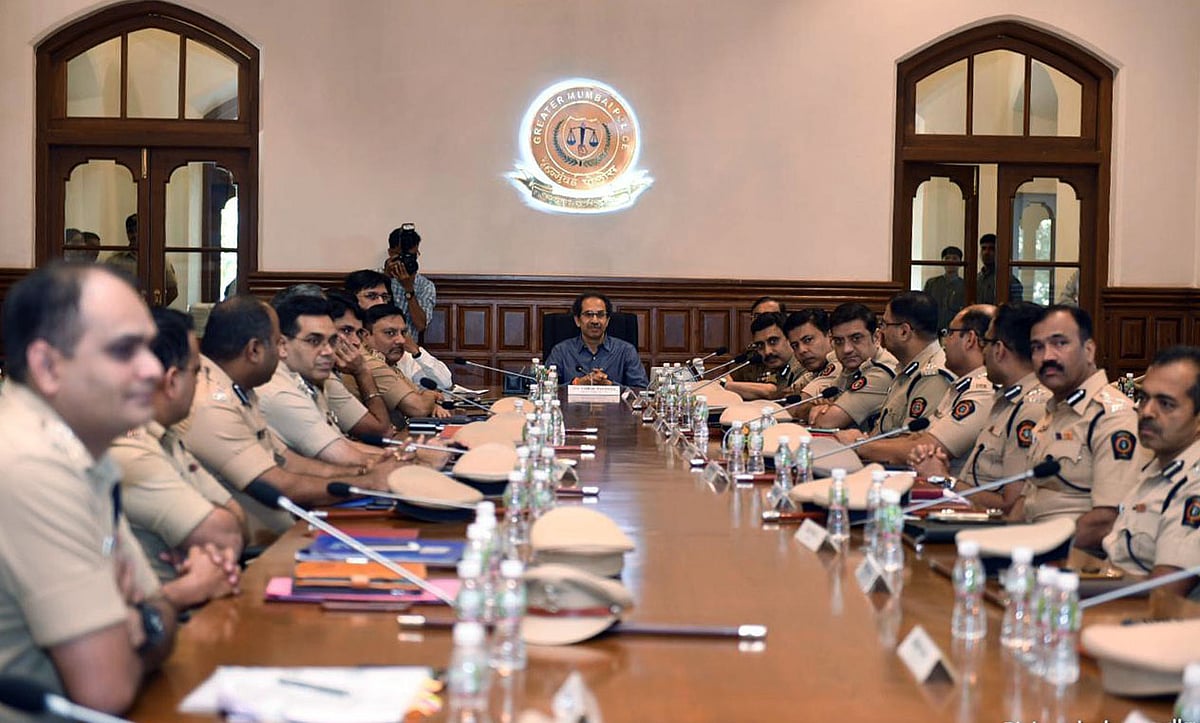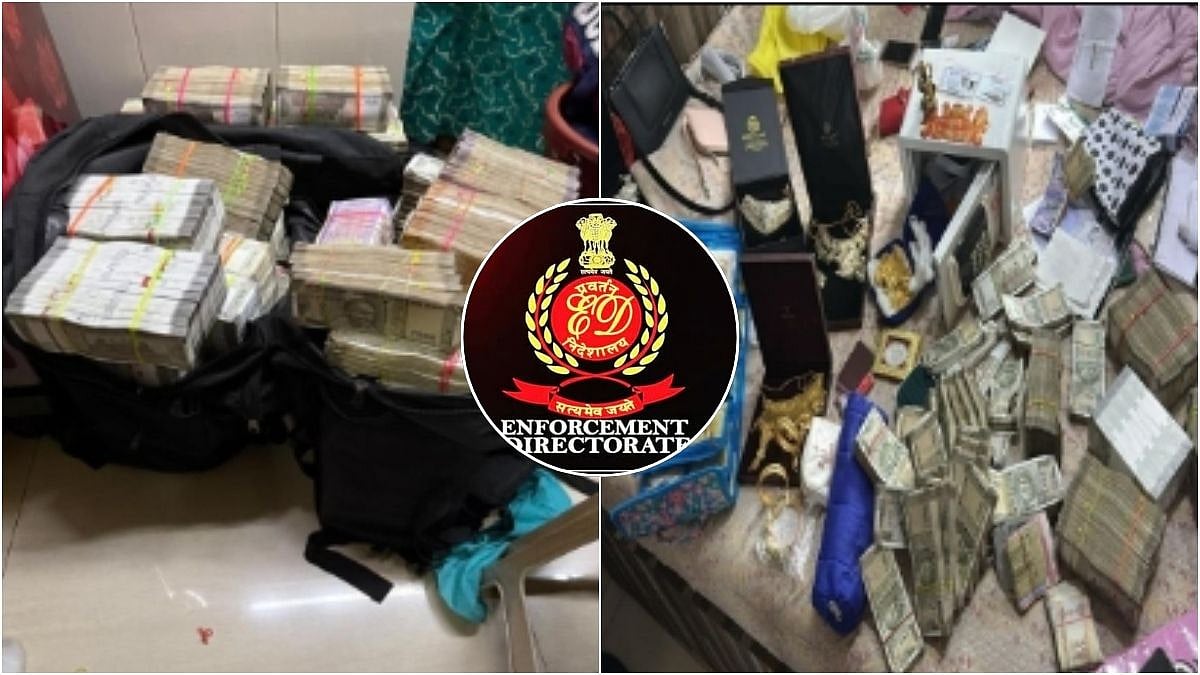Though I was born in Bombay in the house that my father and his mother before him were born I did not come to live in the city till I was six years old. My father started his career in the Indian Postal service in the Districts. When I was six he was shifted to the Post Master General’s office in Bori Bunder as one of the three Assistant PMGs.
My first vivid recollection of the police in those days was when I was returning home from school after picking up my father from his office. My school was at Dhobi Talao. The car would drive me to the General Post Office where my father worked. Then father and son reached home together, driven by Baptista Mendonca who doubled as a Postman.
The driver was a native of Mangalore. His Konkani had a different deflection from the one spoken in Goa. But that did not matter. My father and he were engaged in an animated conversation in Konkani. They were not paying attention to the traffic policeman standing on a box at the junction of Wodehouse Road and the road that led to Electric House, the BEST Headquarters. Mendonca broke the traffic signal and so the policeman blew his whistle!
The driver stopped the car, got down and walked up to the policeman. My father followed and spoke to the policeman. We were allowed to proceed. My father told me that it was his fault for diverting Mendonca’s attention and so he had asked the policeman to pardon the driver, which the policeman had done.
The next evening the same traffic cop was on duty at the same junction. Passing him our driver slipped something into the cop’s palm, very dexterous was he. My father inquired and was informed that it was a mere token of gratitude of a “pawli”, a four-anna bit. I remember my father promptly diving into his own purse, removing coins of equivalent value and recompensing Mendonca.
This was my first recollection of the City police! I had not bothered to notice the cops prior to that incident. But I did pay some attention after that. I noticed the policemen wore something like a Knickerbocker, blue in colour that came below their knees and was tied there around the calf. On the torso a tunic, buttoned up to the chin, also blue in colour. Atop the head they had a yellow headwear like bellboys wore in hotels. People used to describe the uniformed cops as blue bottles, yellow caps!
My father died young at age 42 in 1937. I was eight years old then. We shifted house after his death to a more affordable accommodation opposite the Colaba Police station. I was exposed to more policemen there. The Inspector in charge must have been a white man. The Sub Inspectors were a mixed lot and unlike the Constables who travelled standing in the electric trams of that era, the officers were allowed standing room in the BEST buses. Quite a few of them were white men, Anglo-Indians I suppose.
When I was 12 we shifted to Byculla. It was there at age 14 or 15 that I was hauled off to the Police Station along with other boys of our building as the cricket ball in play flew over the dividing wall and smashed the window pane of a neighbour on the other side. We were made to stand in line in the police compound while the flat owner went inside to recount his woes to the Inspector in charge.
A tall white man in uniform soon emerged frightening the living daylights out of us. He inquired who the Captain was. No one admitted to the honour! The flat owner pointed to me. I froze! The inspector told me to step out. I did as I was told. I did not know what was coming next. But the Inspector only chided me for not instructing my teammates on the basics of hitting a cricket ball. The ball should not leave ground level he said. And certainly it should not fly over walls. With this knowledge imparted he let us depart. The flat owner was not amused, but my friends and I developed a healthy respect for the City’s police!
Many, many years later when I was Commissioner of Police of neighbouring Thane, I received an SOS from my sister in Colaba that her son had been marched off to the Police Station because of another case of a broken window. Only the culprit this time was not a cricket ball but a football, kicked around on the road outside her flat. Her husband the Head of Cardiology in the K.E.M Hospital at that time, had visited the Police Station and found his son in the lock-up!
The boys were released soon thereafter but not before suffering a minor trauma. Their parents, too, felt that the police were a trifle harsh on youth which had no place to play except the public road when cars were not in sight, a debatable proposition!
The changes that the City Police has undergone in the past nine decades since my own birth have been many and is not restricted to their uniform. At first, the knickerbocker was discarded for a pair of blue shorts and the yellow “band box” type of headgear was replaced by a blue side cap with a yellow flash. Sometime later even these were abandoned for a more acceptable khaki shirt and long trousers with a side cap of blue and yellow.
The educational standards for recruits were sharply raised. Most of the men today are university graduates though what is prescribed as the minimum is a Secondary School Leaving Certificate. The Constable is computer savvy and can be entrusted with investigation of crime if required. (This has not been introduced as yet in Mumbai City).
The wives of the policemen today are also well educated. This has made an immense difference to life in the Police lines and to the policeman’s attitude to work. The size of police families has drastically decreased. Aspirations have risen. Education of their children, health of the family and provision of a roof over the head after retirement have become their prime concerns. In yesteryears the ambition was to succeed their fathers in the khaki uniform. Not any more. Medicine, engineering, law, business management, the sky is the limit! The children of policemen both sons and daughters, seek a better position and status than their fathers and that is true progress.
Though permitted to travel free by bus, hardly a policeman or two does that. The great majority has motorcycles. I have even noticed a few cars parked in the lines! The percentage of subordinate officials of the rank of Inspector and sub Inspector who own their own transport is almost eighty or even ninety percent.
These should be counted among the positive signs. The negative, unfortunately, are in the realm of performance. The pride in work is what is missing. In the old days if a major crime remained undetected Crime Branch Officers would spend days moping over the failure to detect the cases. They would huddle up in their offices and go over what had been done and what was left to be done. They would assign officers to chase unchecked clues and to renew contact with possible witnesses.
That spirit is no longer in evidence. The number of supervisors has increased in geometric proportions but the standard of supervision has not. I am ashamed to admit that the accent now is on becoming rich quickly at any cost, a value system that has gripped the population at large, especially the young. Unless this tendency is fought by the more committed police leaders the public, which is the ultimate user of the security apparatus, is bound to lose.
But the biggest and most visible, as well as the most damaging change that has taken place in the last three decades is that the administration of the police force has slipped into the hands of the political class! Professional police leaders have lost control over their own men. And that is an unmitigated disaster that will ultimately result in indiscipline and total lack of accountability.
The political class has recast the rules of transfers and appointments, taking the reins thereof almost entirely in their own hands. The police leaders have given in either voluntarily or by force of sorts. Corruption has sky-rocketed and criminals allowed a free hand. Soon the people will not understand what has hit them.
The recent spat between the former Police Commissioner of the City’s police and the former Home Minister of Maharashtra, something that was unimaginable in gentler times, speaks for itself. An officer facing a murder charge and under suspension for the past seventeen years was irregularly reinstated in service and given the task of collecting money from a mixed bag of law breakers! The Minister wanted the lion’s share of the spoils, or so it was alleged by the Commissioner.
It will not be difficult for the C.B.I or N.I.A. to ascertain the truth. But I am not on that subject in this article. Here, I am only highlighting the changes in the city Police over the course of the past ninety years since I was born in this city. Some of the changes are for the better but the last mentioned change easily neutralizes all gain.
(The author is a retired IPS officer and former Police Commissioner of Mumbai)





